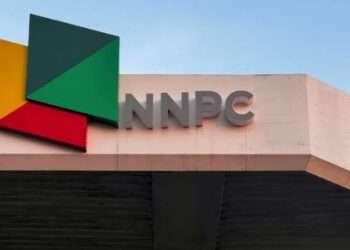Franklin Cudjoe, President of IMANI Africa, has stated that the Ghana Electronic Procurement System (GHANEPS) was established to address the rampant abuses in public procurement, which experts estimate are causing significant financial losses to the country.
He pointed out that among the abuses are bid-rigging schemes, where public sector agencies manipulate the tender process by staging fake competitions to achieve premeditated results, undermining the integrity of the procurement process.
Cudjoe stated that GHANEPS aims to prevent collusion, ensuring fair, transparent, and efficient tenders, and enabling the public sector to get value for money by preventing insider information from being leaked to favored tenderers, thereby promoting genuine competition.
“There are of course other objectives like local content and gender empowerment etc”. – Franklin Cudjoe
However, Franklin Cudjoe expressed doubts about the effectiveness of GHANEPS in its current form and operation, wondering if it is truly delivering value for money for the public sector’s expenditures.
“Can independent actors use GHANEPS to determine if things are improving in public spending? Is GHANEPS enhancing transparency and aiding proper oversight by citizens in Ghana in relation to procurement activities? Can its current setup do that? Those were the questions my colleagues set out to address”.
Franklin Cudjoe
Furthermore, Franklin Cudjoe found it shocking that Kwame Prempeh of Public Procurement Authority disputed Bright Simons’ numbers, knowing that GHANEPS entries are constantly updated, and at the time of evaluation, Bright accurately reported 4000 out of approximately 4800 entries, demonstrating Bright Simons’ dedication to thorough research.
He noted that after thoroughly examining 4000 entries, Bright Simons concluded that GHANEPS, in its current state, is ineffective and fails to promote value for money, rendering it essentially useless.
Franklin Cudjoe also argued that the majority of entries on GHANEPS lack sufficient information to determine if government purchases through e-procurement are reasonably priced, as they cannot be compared to market rates and independent research benchmarks.
He pointed out that a significant number of entries on GHANEPS lack meaningful price data, making it impossible to conduct meaningful benchmarking and price comparisons. “And when there is no price information, product, and service descriptions are useless”, he added.
GHANEPS Bypassed In Most Public Procurements
Furthermore, Franklin Cudjoe highlighted that a significant portion of public sector procurements in Ghana are circumventing GHANEPS, as only a tiny fraction of the numerous procurement entities consistently utilize the platform, rendering it ineffective in achieving its intended purpose.

Franklin Cudjoe noted that while some companies are entering information on GHANEPS, it is insufficient to monitor compliance with the Public Procurement Authority (PPA) law, as crucial details about the tendering process, bidders, prices, terms, and conditions are frequently missing or omitted from the entries, rendering the data incomplete and ineffective for tracking compliance.
“Kwame has given a litany of excuses about why that is the case. Whatever be the issue, those excuses do not change the fact that GHANEPS, as currently designed and deployed, is not contributing in any shape or form to advancing Value for Money in public procurement in Ghana. He should share clear and concrete case studies with links to entries on GHANEPS where improvements in pricing, quality, or other benchmarks can be attributed to GHANEPS for any public spending transaction”.
Franklin Cudjoe
Franklin Cudjoe argued that the justification that “framework contracts” are responsible for the irregular entries on GHANEPS is flawed, as these contracts hinder the ability to benchmark prices and assess the competitiveness of tender outcomes, rendering the procurement process opaque and unaccountable.
However, he observed that if “framework contracts” are indeed leading to irregularities on GHANEPS, it implies that these contracts have become a loophole in Ghana, exploited to circumvent the main objective of the PPA, which is to ensure transparency, accountability, and value for money in government procurement.
Franklin Cudjoe pointed out that even if a vendor has a framework agreement, one would still expect to see genuine transactions with reasonable and sensible price data on GHANEPS, indicating that the absence of such data suggests a deeper issue with the procurement process.
“Each transaction that is placed pursuant to the framework agreement should be properly captured in terms of pricing and descriptions”. – Franklin Cudjoe
As such, Franklin Cudjoe argued that Kwame Prempeh’s responses have failed to address the core issues and have not adequately responded to the thorough analysis that revealed GHANEPS and e-procurement in Ghana have had no impact in curbing the widespread corruption and misuse of funds in the public sector, masquerading as “public procurement”.
READ MORE: Stonebwoy Expresses Why He’s Thrilled to Rejoin TGMAs



















